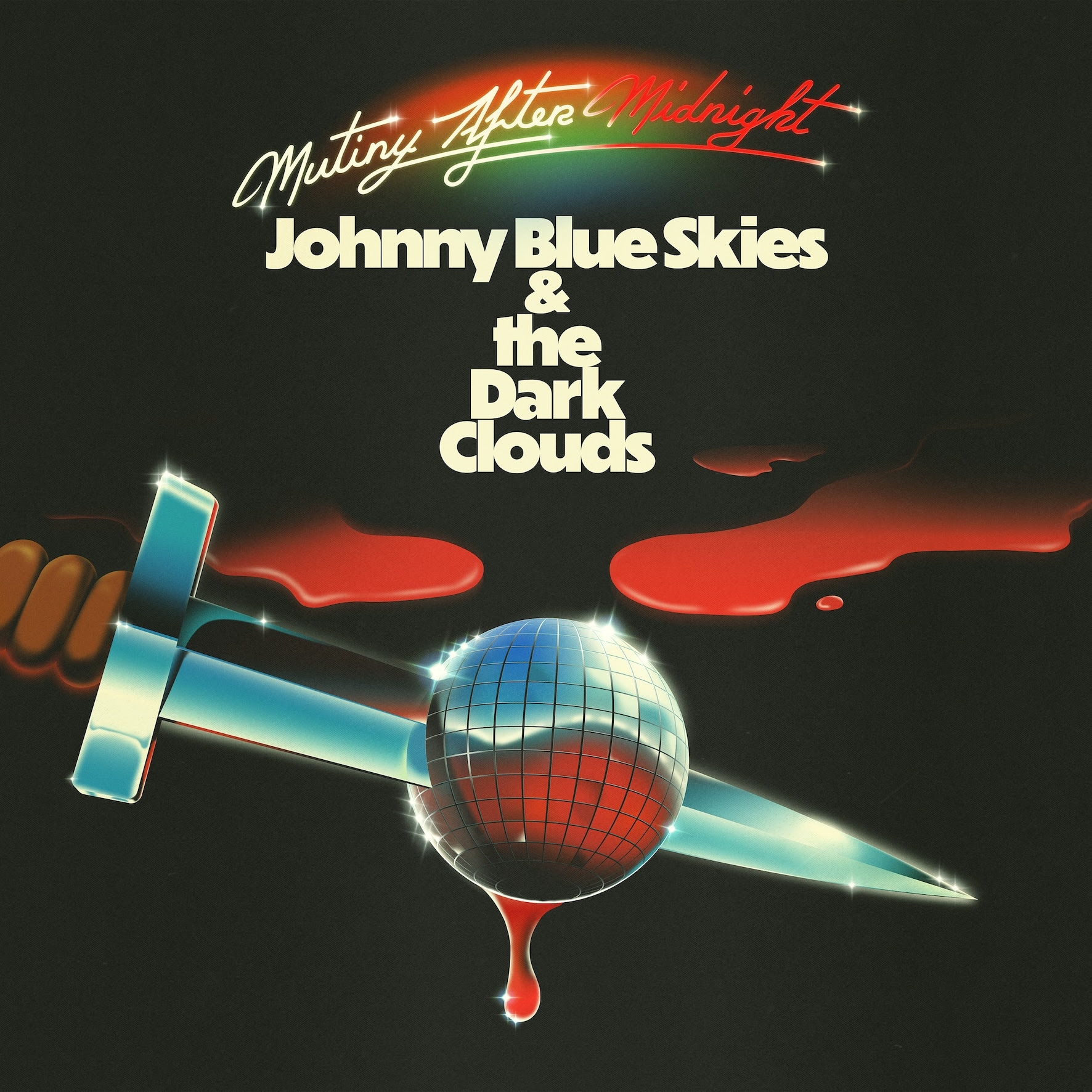Sublime's self-titled third album -- the album that sold 5 million copies and turned the group into dorm-room staples forevermore -- almost didn't come out, for an entirely understandable reason. On 5/25/96, Brad Nowell, the band's frontman, died of a heroin overdose. This was after his band had finished the album but two months before it was due for release. That means: No Nowell on tour, no Nowell doing interviews, no Nowell in videos, no Nowell to promote the album in any way at all. In this fascinating oral history of Sublime's last show -- the one the band played immediately before Nowell died -- Rick Bonde, the band's former booking agent, says that the head of MCA, the band's label, told him that he was going to shelve the album: "I'm done, Rick, I can't do this. I've spent half a million dollars on Brad's rehab, and now we don't have a band to tour behind it, I'm just gonna shelve it, it's not going to work, it's never going to be successful." Bonde says that he had to spend 20 minutes in the guy's office, badgering him to release it. Now: This sounds exactly like the sort of shit a former booking agent would make up, 20 years after the fact, in service of a good story. But I believe him anyway.
After all, Sublime were a band of sun-baked ska-punk yokels with exactly one hit to their name. (That hit was 1992's "Date Rape," a straight-up ska song that didn't hit radio until 1994-ish. It's a story-song about a man who rapes a woman and who then, in a form of cosmic rebuke, goes to prison and gets raped in his cell. It's presented as a happy ending. This is what passed for male feminism in the '90s.) Sublime had built up an audience for themselves, but they'd done nothing to suggest that they could become the house band in America's frat nation, especially in death. They'd brought in Butthole Surfers guitarist Paul Leary to co-produce their album, and that does not exactly indicate massive confidence on the part of the label. Sublime easily could've disappeared without a trace. Instead, it instantly became inescapable. Millions of children learned to restrain themselves from singing along with the cuss words when they were in the car with their parents and "What I Got" came on the radio. Nowell became a star posthumously, and the sound of alt-rock radio went through an almost-immediate sea change.
There were plenty of reasons for the sudden ubiquity of Sublime. There was the story of Nowell, a hopeless addict who, in death, got famous for a song about being thankful for the love in his life, about taking nothing for granted. There was the bubbling-up undercurrent of ska-punk, already a presence on the radio thanks to Rancid and No Doubt and "Date Rape." ("Date Rape" was reportedly huge on KROQ in Los Angeles. I only heard it once or twice on the radio in Baltimore, but this was still enough to convince me to buy 40 Oz. To Freedom on cassette as soon as I could find it. I wore that motherfucker out, too.) There was the post-grunge, post-Cobain hangover, in which America's kids searched for something that was both edgy and fun to listen to while drinking purloined Milwaukee Ice while sitting in the bed of your friend's pickup truck. Sublime, who were covered in tattoos but who sounded more like Jimmy Buffet than like Nirvana, fit the bill.
And there was the weird, intuitive polyglot style that Sublime presented. Other ska-punk bands were just ska-punk bands; they didn't have a lot else going on. Sublime drew on dancehall and rap and dub and Chili Peppers party-funk and psychedelia and hardcore. Plenty of it was clumsy, but none of it felt forced. On 40 Oz. To Freedom, the band had covered the Descendents and Jimmy Cliff and Bad Religion and the Grateful Dead. In a more harshly delineated musical climate, this felt revelatory. Other artists were playing around with ideas of genre, but they were doing that under the guise of art, or at least of cool-kid experimentalism. Sublime were as genre-agnostic as the Beastie Boys or Beck or Stereolab, but unlike those bands, they just sounded like some doofy-ass stoners playing around with all the music they loved, not like intrepid explorers on a mission to open up our ears. In a year when most of us were just signing up for our first America Online accounts, that matter-of-fact cosmopolitanism presented a look into the future, in ways that none of us could've anticipated. Within the next two years, nu-metal and rap-rock would stage a complete hostile takeover of rock radio. Everyone already liked everything, but that was a new and messy development, and we were all just figuring things out.
But here's my hot take: I think the reason Sublime captured the national teenage imagination was this: It's a good fucking album. Admittedly, the fact that its biggest hit, "Santeria," is also its most irritating song weakens my case a bit here. Still, this is a complete vision of an album, one that roams all over the musical landscape while still maintaining an aesthetic and a point of view. As an opening one-two shot, "Garden Grove" and "What I Got" are just heartbreakingly lovely -- a grand dirtbag lyrical shrug from a canny hooksmith who only had a few weeks to live when he laid them down. They're happy songs, and we don't often hear that level of contentedness from our doomed geniuses. The album maintains that happiness, even when it gets weird and problematic and angry and, at times, bad.
Not all of the album has aged as well as those two songs, but enough of it has. The ska and punk songs are both fine examples of their respective genres at work. The slow, goofy, meandering bits still have hooks. "Caress Me Down" is a ferociously silly and ballsy gem, a horny-white-guy dancehall dick-grab -- recorded over the '80s Sleng Teng riddim, no less -- in which Nowell spends an entire verse toasting in elementary Spanglish. And when you're talking about the final song on the final album of someone who died too young, "Doin' Time" -- in which Nowell turns Gershwin's "Summertime" into hazy, scritchety-scratchety beach-bum blues -- is not exactly "All Apologies," but it's closer than this band should've logically been able to get.
Of course, "Doin' Time" also includes a line about how Nowell would like to hold his girlfriend's head underwater. And listening to Sublime now, it's remarkable how much of this would not fly today, especially coming from a blissfully oblivious white guy. Consider "Wrong Way," a song in which Nowell -- or his character, anyway -- has sex with a 12-year-old prostitute and then offers to murder her pimp father for her. "It's the wrong way," he acknowledges, but I don't think we, as a society, fully appreciated just how wrong it was. This song was a single.
And that song is matched by "April 29, 1992 (Miami)," the song where Nowell happily recollects his time looting stores during the Los Angeles riots. Nowell starts the song lightly chiding anyone who didn't participate in the riots, and then he goes onto lovingly describe burning down a liquor store and loading up his van with brand-new storeroom furniture: "Where do you think I got this guitar that you're hearing today?" Later in the song, Nowell even brushes off the idea that those riots were about righteous and pent-up black rage: "If you look at the streets, it wasn't about Rodney King / It's this fucked-up situation and these fucked-up police / It's about coming up and staying on top / And screaming 187 on a motherfucking cop." It's some of the most gleefully, vividly amoral music that 16-year-old me had ever heard. And it's also a great song, maybe Sublime's best, with a sinister snakey guitar line and a Mobb Deep sample and a deeply satisfying structure. After his death, Nowell had millions of basic, normal-ass white kids singing along with a song about how riots are great. That was some deep transgressive shit.
In the years after Sublime, happily reggae-addled white-kid doofs would go onto conquer alt-rock radio, at least for a little while. 311 and Sugar Ray and Kottonmouth Kings would follow in their wake, and that one guy in Ghost World would ask Scarlett Johansson if she wanted to go hear some reggae. Critically, history and legacy have not been especially kind to an album that was already at least a little bit embarrassing. But the core of Sublime remains: This poor dead guy who, admittedly, was deeply self-destructive but who really just wanted to sing songs about his dog and about being hornier than Ron Jeremy. It's a hopelessly hopeful album, and it will live on as long as the culture of collegiate stonerdom survives. Respect it for what it was, not for what it foreshadowed.
[videoembed size="full_width" alignment="center"][/videoembed]
[videoembed size="full_width" alignment="center"][/videoembed]
[videoembed size="full_width" alignment="center"][/videoembed]
[videoembed size="full_width" alignment="center"][/videoembed]






